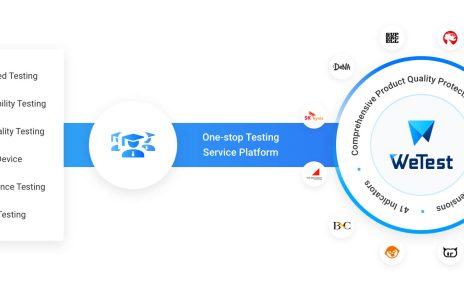Cloud storage for video streaming and hosting refers to the use of online storage services to store video files and enable their delivery over the internet. Instead of hosting videos on local servers, cloud storage allows videos to be stored on remote servers, which can be accessed by users through the internet. This makes it possible to stream videos on demand, without requiring users to download them first. Cloud storage services typically offer features such as high scalability, security, and reliability, making them an attractive option for businesses and individuals looking to store and stream video content.
Benefits of Cloud Storage for Video Streaming and Hosting
Cloud storage offers numerous benefits for video streaming and hosting. First, it provides scalability, allowing users to store and stream videos regardless of the amount of data. Second, cloud storage is easily accessible from any location with an internet connection still if you face any issue in login OVHcloud fix it by reloading the page or checking the credentials, making it ideal for remote teams or dispersed audiences. Third, cloud storage providers typically offer advanced security measures to protect data from unauthorized access or theft. Fourth, it reduces costs associated with maintaining physical storage devices. Finally, cloud storage also enables users to easily share and collaborate on video content, making it a powerful tool for content creators, businesses, and individuals alike.
Key Features of Cloud Storage for Video Streaming and Hosting
Key features of cloud storage for video streaming and hosting include high bandwidth and low latency for smooth and uninterrupted streaming, as well as support for various video formats and resolutions to ensure compatibility with different devices and screen sizes. Additionally, cloud storage providers typically offer robust content delivery networks (CDNs) to optimize video delivery and reduce buffering. Other important features may include customizable player interfaces, analytics and reporting capabilities to track viewer engagement, and integration with other tools and platforms such as video editing software, social media, or e-commerce platforms. Finally, strong security and data protection measures are essential to ensure the safety and privacy of the stored and streamed videos.
How long do videos stay in the cloud?
The length of time that videos stay in the cloud depends on the specific cloud storage provider and the plan or package selected by the user. Some providers offer limited storage and may automatically delete videos after a certain amount of time or once storage limits are reached. Other providers may offer unlimited storage with no automatic deletion. In general, videos can be stored in the cloud for as long as the user desires, as long as they continue to pay for the storage plan and adhere to any usage limits or guidelines set by the provider. It’s important to review the terms and conditions of the storage plan to understand any restrictions or limitations.
Which cloud service is best for video streaming?
Several cloud storage providers are well-suited for video streaming, each with its own unique features and capabilities. Amazon Web Services (AWS) and Microsoft Azure are popular options due to their powerful content delivery networks (CDNs) and global infrastructure. Google Cloud Platform (GCP) is also a strong choice with its scalable storage and built-in video streaming service, YouTube. Other options include Vimeo Livestream for live-streaming events and Wistia for businesses and content creators looking for advanced analytics and branding customization. Ultimately, the best cloud service for video streaming will depend on the specific needs and budget of the user, as well as the size and scope of their video content.
Can videos be stored in cloud storage?
Yes, videos can be stored in cloud storage. Cloud storage providers offer a variety of solutions for storing and managing video content, including support for different formats and resolutions. Users can upload their videos to the cloud and access them from any device with an internet connection, making it easy to share and collaborate on video projects. Cloud storage also provides a scalable and cost-effective solution for businesses and individuals with large amounts of video content, as they can easily add or remove storage capacity as needed. Additionally, cloud storage providers typically offer advanced security measures to protect the stored videos from unauthorized access or theft.
Conclusion
In conclusion, cloud storage offers numerous benefits for video streaming and hosting. It provides scalability, accessibility, and advanced security measures while reducing costs associated with physical storage devices. Key features of cloud storage for video streaming and hosting include high bandwidth and low latency, support for various video formats and resolutions, robust content delivery networks (CDNs), and integration with other tools and platforms. Popular cloud storage providers for video streaming and hosting include Amazon Web Services (AWS), Microsoft Azure, Google Cloud Platform (GCP), Vimeo Livestream, and Wistia. Ultimately, the best cloud service for video streaming will depend on the specific needs and budget of the user, as well as the size and scope of their video content.




